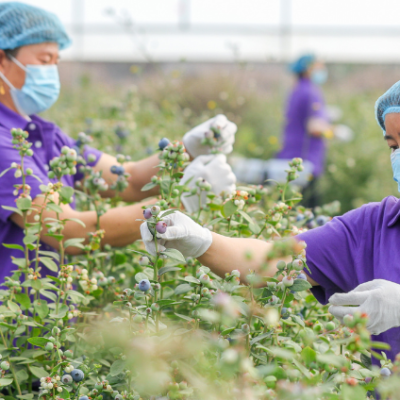When responsible media reporting can challenge us … to improve
- . June 2025
By Mario Steta
It was a Monday morning, at a time when print newspapers were still relatively popular, and Mural – which was and remains one of the leading newspapers in Guadalajara, Mexico – was my go-to source for local and regional news. As I glanced at the front page, a photograph and caption related to migrant worker living conditions caught my attention.
This was about 10 years ago. While northwestern Mexico had experienced decades of internal migrant flows to support winter horticultural production for export, the need for migrant field workers in central Mexico was practically unheard of – similar to what we’re beginning to see in some areas of Morocco today. As such, migrant flows, contract practices, and the broader framework around living conditions had not yet received the level of focused or appropriate attention they deserved.
Although the article did not name a company or farmer, it indicated the issue was located in the Tapalpa region and related to strawberry production. At the time, the number of farms or companies growing berries in that area was very limited, so it didn’t take long to realize the article referred to one of the growers our company worked with.
As unfortunately often happens when production expands rapidly – whether at the industry, regional, or farm level – the pressure to find solutions can sometimes lead to decisions or practices that are clearly unacceptable. In this case, the grower had not been aware of the internal situation. While he acknowledged he should have known, the article brought to light information he took immediate action on, correcting the deficiencies reported.
So, Saul, the farmer in question, worked with us to address the situation seriously. While he was already one of the most committed growers when it came to his workforce, he raised the bar – enhancing his focus, systems, actions, and verification processes to ensure proper living conditions for his growing number of migrant workers. As a result, Saul and his company have, for years, set the standard in migrant housing practices within North America – and arguably globally – providing not only adequate infrastructure but also opportunities for professional and, more importantly, personal growth for both migrant and local employees.
I called the journalist who wrote the piece, recognizing the fair, balanced, and objective way the report exposed a reality that needed to be corrected. The reporter, who was somewhat initially concerned about my call, was surprised when I expressed my thanks for the work and for helping us correct and improve something that was clearly wrong.
As the horticultural industry in many regions around the world began to sharpen its long-overdue focus on worker conditions, moments like this underscored the need for a more consistent and formal approach across the value chain – from farmers to customers and retailers. More on this in our next editorial, where we’ll reflect on the work of an investigative reporter from a leading California newspaper.
06.06.2025
IBO Editorial







